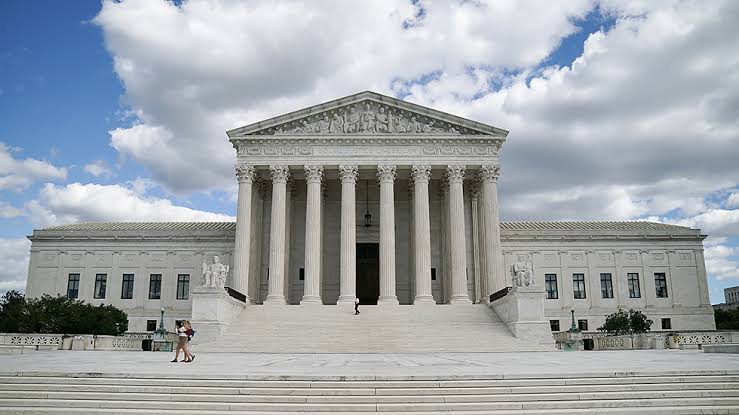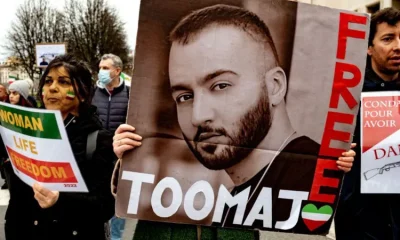American Justice System
US Supreme Court: Free Speech Or Gay Rights

The US Supreme Court has heard arguments in the case of a graphic designer who refused to create wedding websites for same-sex couples.
Eko Hot Blog reports that It is the latest case to reach the top court that pits free speech rights against anti-discrimination laws.
EDITOR’S PICKS
-
Colombia: Landslide Kills 3, Buries Several People
-
Leaders Of South Africa’s Governing Party Sit To Decide Cyril Ramaphosa’s Fate
-
Explosions Allegedly Hit Two Military Airfields In Russia
Lorie Smith, from Colorado, argues she cannot offer her services to same-sex couples because of her Christian faith.
But this may violate a state law prohibiting businesses from refusing service due to sexual orientation.
Most US states have similar anti-discrimination laws in place.
Ms Smith, 38, has argued Colorado’s public accommodation law violates her First Amendment right to free speech, as the state would be forcing her to express a message she does not agree with.
“If the government can censor and compel my speech, it can censor and compel anybody’s speech,” she said before arguments began on Monday. “We should all be free to live and work consistently with our deeply held beliefs.”
The graphic designer and her supporters argue that ruling against her could force artists to do work that is against their faith.
Her opponents, however, argue that a victory for Ms Smith could pave the way for businesses around the country to discriminate against customers for various reasons such as religion, ethnicity or national origin.
The conservative-leaning court must now decide whether Colorado’s enforcement of the law violates the free speech clauses of the First Amendment.
And on Monday, its six conservative justices signalled sympathy for Ms Smith after more than two hours of arguments. The three liberal justices leaned towards the state.
Conservative Justice Samuel Alito asked if a business offering to write vows could ever refuse to write something. “Can they be forced to write vows or speeches that espouse things they loath?” he said.
But Justice Sonia Sotomayor, part of the court’s liberal minority, asked if the ruling in favour of Ms Smith could lead to discrimination on other grounds such as race or disability. “Where’s the line?” she said.
In 2016, Ms Smith filed a lawsuit that sought to block the state’s public accommodation law. After two lower courts sided with Colorado, the case headed to the Supreme Court.
The case has highlighted a partisan rift in the US, with President Joe Biden’s administration and 20 largely Democratic states standing behind Colorado and arguing that a ruling in Ms Smith’s favour could have far-reaching consequences.
Another 20 Republican-leaning states, along with various religious groups, have voiced their support for Ms Smith.
The court has heard similar cases in the past involving a florist and a baker.
A case in 2018 centred on a Colorado-based baker, Jack Phillips, who argued that being legally required to create a cake for a same-sex wedding violated his rights to free speech and religious freedom.
The Supreme Court ruled narrowly in his favour, finding that Colorado failed to show tolerance for Mr Phillip’s beliefs.
FURTHER READING
-
Goblin Mode’ Revealed As Oxford Word Of The Year 2022
-
Russia: Bodies Of 2,500 Seals Found Along Caspian Sea Coast
-
Taiwan: The Battle Against Mobile Phone Fraud
The court, however, left open the question of whether states can apply public accommodation laws more generally.
Source: BBC
Click here to watch video of the week:
https://youtu.be/XmirFJUnqVE
Advertise or Publish a Story on EkoHot Blog:
Kindly contact us at [email protected]. Breaking stories should be sent to the above email and substantiated with pictorial evidence.
Citizen journalists will receive a token as data incentive.
Call or Whatsapp: 0803 561 7233, 0703 414 5611














